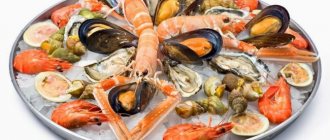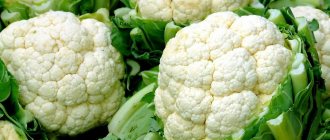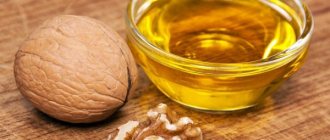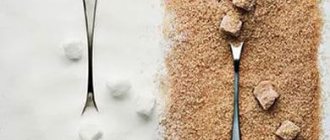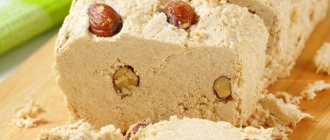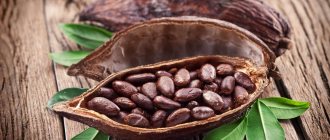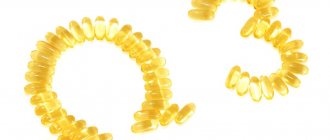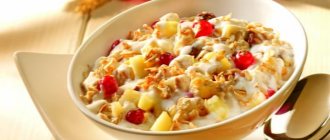Often young parents have a question: is it possible to eat nuts while breastfeeding? In this article we will try to figure out how useful this product is and what harm it can cause to a baby during breastfeeding.
Breastfeeding is a responsible process, the basis of which is selectivity in nutrition. Not all foods included in the diet of a nursing mother are well received by the child. Therefore, every innovation in the menu requires caution.
Mother's milk should be rich in vitamins, minerals, organic acids and other microelements necessary for the baby. Where do all the nutrients come from? Of course, from the food that a young mother eats when feeding her newborn. You can enrich your diet with fruits, herbs, vegetables, protein foods, including nuts.
What are nuts
This product is valuable because it contains vegetable protein. However, there are so many different varieties that it is difficult to determine which one has more vitamins and which is a source of carbohydrates and protein. Let's take a closer look at what this product is for a nursing mother.
- Any nut necessarily contains vitamin C and ascorbic acid, which is very important for maintaining immunity.
- Polyunsaturated fatty acids are building materials for a growing organism. Without them, the firmness and elasticity of connective tissues is impossible.
- Potassium, magnesium, zinc and iodine, which are part of the core, are necessary for most chemical reactions to occur.
- Vitamins A and E are the basis for the health of any growing organism.
- B vitamins perform protective functions and contribute to the normalization of all internal organs.
- Protein activates bone mass growth.
- Carbohydrates start metabolism, give strength and tone.
- Essential oils activate the functioning of certain organs and stimulate brain activity.
- Beta-carotene strengthens vision.
- Iron helps a nursing mother get rid of anemia that occurs after childbirth.
Product Types
There are a huge number of varieties that are grown in different countries. Nuts during breastfeeding are an indispensable product for maintaining the level of vitamins and essential micro- and macroelements in the body of both mother and child.
- Walnut. It grows only in warm and hot places. Contains fat, therefore it is extremely nutritious and beneficial for the body. Recommended for use for inflammation and cardiovascular diseases.
- Cashew nuts. Its homeland is Latin America, in particular Brazil, and Africa. Before sale, nuts are shelled, since the shell contains toxic substances. However, the fruit itself is tasty and healthy. The fat content of this product is low. Cashews contain vitamins, micro- and macroelements.
- Hazelnut. Hazelnuts with this name are widely known as a folk delicacy. Much higher in calories than bread, so its nutritional value is quite high.
- Pine nuts. Contained in cones. Their kernels have a high fat content and contribute to the activation of many internal organs.
- Peanut. Or in other words, groundnut. Its homeland is South America, but for several centuries it has also been grown in Russia. The grains are usually eaten fried.
- Almond. Grows and bears fruit in Asia. It is used to obtain oil, but its fruits are known to everyone as a delicious delicacy and an additive to confectionery products.
- Coconut. The fruit of a palm tree, and, accordingly, belongs to exotic imported products. Its flesh is tender and juicy. In the confectionery industry it is usually used as coconut flakes. Fresh coconut has a positive effect on the organs of vision, improves digestion, starts the process of fighting pathogenic bacteria, and has antimicrobial properties.
Useful properties of different types: video
Energy value and benefits of nuts
65% of the kernels contain fat, so their energy value is undeniable. They are considered a very high-calorie product, which means breast milk will be more filling. In addition, they contain about 15% healthy proteins and 10% carbohydrates, other important macro- and microelements involved in the development of the brain, cardiovascular system and digestive tract.
Walnuts
This natural antidepressant is involved in many vital processes of the body. It is rich in essential amino acids, reduces the risk of developing cardiovascular diseases, helps in the production of enzymes and normal intestinal function, and is also involved in brain function. For a woman experiencing motherhood for the first time, many situations can be stressful, which can affect lactation. Eating walnuts comes to the rescue at such moments.
Benefits during lactation
Despite the benefits of nuts, you should not abuse them
Firstly, if you do not overuse the amount of walnuts, the content of their elements in breast milk has a calming effect on the baby. He sleeps better because the high-calorie “lunch” gives him the opportunity to not feel hungry for longer. This means his sleep is deeper, his immunity is stronger, and his development is faster. In addition, walnuts for an adult are a storehouse of vitamins and active elements for brain function and thinking. And the mother, who includes them in her food, is more stress-resistant and healthy, sleeps better, which means her immunity is strong.
When breastfeeding, lactation may not be stable, and there are periods when there is less milk. This may be due to the baby's growth, psychological or physiological factors.
Pediatricians prescribe an excellent lactogenic agent to help nursing mothers:
- Take 1 dessert spoon of shelled walnuts.
- Grind them in a mortar.
- Boil the milk.
- Pour hot milk over the mashed mixture and add sugar to taste.
- Let the product brew, it’s a good idea to leave it in a thermos so that it is always warm at hand.
When you feel that your breast milk has decreased in volume, take 1 tablespoon three times a day.
Pine nuts
Pine nuts contain approximately 55-65% fat, proteins, starch, vitamins B, E, K, many amino acids and microelements responsible for hematopoiesis, development of the nervous system, and counteracting colds and inflammatory processes.
The composition is characterized by an increased content of the most deficient amino acids: lysine, tryptophan, methionine. During breastfeeding, it is also useful for a nursing mother to consume pine nuts. All beneficial substances act on it and pass through milk to the baby. What are the essential amino acids contained in pine nuts responsible for when they enter the body of the mother and newborn?
Lysine:
- Helps resist ARVI and fatigue.
- Increases appetite.
- Reduces irritability.
Methionine:
- Antioxidant.
- Helps protect the liver.
- Participates in digestion processes.
Tryptophan:
- Participates in the process of enzyme production.
- Strengthens the body's protective background.
- Provides an antiviral effect to the body.
Benefits when breastfeeding
- First of all, the nutritional value of this product makes it possible to satiate when the baby consumes a small amount of breast milk.
- Young kernels contain a large amount of vitamin C, which helps maintain immunity.
- Nuts are a good stimulator of lactation. Particularly noteworthy are walnuts, the grains of which have a high Omega-3 content.
- Many varieties help cleanse the body and remove toxins. These include hazelnuts, hazel, and cashews.
- Thanks to the use of this product by a nursing mother, breast milk acquires a richer taste.
Nuts during breastfeeding stimulate the growth and development of the baby's growing body.
Can a nursing mother eat walnuts?
This valuable nutritious product is healthy in small portions. In comparison, cashews or hazelnuts are inferior in composition to pine nuts or walnuts.
Attention! A close relative of the pecan walnut, which is similar in appearance, is a strong allergen. Its use is prohibited not only for nursing mothers, but is also not recommended for children under three years of age.
Is it possible to eat walnuts while breastfeeding if the baby reacts normally to small amounts? You can, but don’t get too carried away with them anyway. Even in adults, nuts can cause stomach upset. Walnuts should be eaten raw!
How much can you eat?
Why is it not recommended to introduce nuts during breastfeeding until the baby is a couple of months old? The fat content of milk, which increases due to nuts, makes it viscous. This can lead to stagnation of milk or the newborn baby’s refusal to breastfeed completely. He will be nervous and angry, remain hungry because the milk is very thick and difficult to suck out. It is better if the baby is already two or three months old, in which case it is recommended to use only a couple of pieces for the first time, gradually increasing the amount to a handful.
Important! The components of nuts contain tannins, so for a very young child there is no need to abuse them. Too large portions of nuts, especially walnuts or peanuts, can lead to painful colic for the baby and constipation or, conversely, a weak stomach.
Peanuts can cause colic in a baby
Are there any harm from nuts during breastfeeding?
Nuts are recommended for mothers who are breastfeeding, but, however, it should be taken into account that this product is an allergen. Therefore, a nursing mother should be careful when consuming them during lactation.
- Old fruits that have been in the store or at home for a long time lose their beneficial properties. It is better to eat young kernels, as they have a higher content of vitamins, minerals and other trace elements.
- It is recommended to eat nuts raw. During heat treatment they often lose their properties.
- In order not to provoke an allergic reaction in your baby, you should eat this product in small portions - no more than 20 g per day, 2-3 times a week.
- Nuts can cause stomach blockage in a nursing mother. To avoid trouble, you should not get carried away with this delicacy.
Frequent consumption of any type of this product thickens the milk. The consequence of such a process can be an extremely unpleasant disease - lactostasis, blockage of the milk ducts.
Nuts during lactation: general contraindications
Along with a lot of advantages, this product has some restrictions for use during feeding of a newborn.
Useful: Restrictions on the menu of a nursing mother or foods that can cause colic in the baby
Nuts occupy third position in the ranking of products that are strong allergens. Allergic reactions that may occur on a baby’s body do not depend on the mother’s individual predisposition to a given food product. Miracle kernels can be safe for the mother, but dangerous for the baby.
Advice
Start eating nuts in small quantities. You can try one nut to understand how the baby’s body will react to the innovation.
- If you find any allergic reactions in your child, such as rash, stomach cramps, upset or constipation, general psychological anxiety, then the nut is not your product and should be urgently excluded from the diet.
- Allergic reactions may develop after some time. This happens in cases where the mother abuses the treat.
Medical contraindications
The lactation period does not allow the consumption of nut kernels if:
- there is individual intolerance;
- spasm of blood vessels in the brain occurs;
- There are skin diseases such as psoriasis, neurodermatitis, eczema of various natures.
The influence of different varieties on lactation
Young parents are often interested in the question of what nuts can be eaten while breastfeeding. This product is indeed approved for consumption by nursing mothers, however, it can have an unpredictable effect on the child’s body. In any innovation, you should know when to stop and experiment with caution. After eating a few nuts, the mother should observe the condition and behavior of the baby. If everything is in order, you can continue to gradually introduce this product into your diet.
On the one hand, such delicacies as nuts are good for lactation. On the other hand, there is a certain risk of eating them if the child is predisposed to allergic reactions or if the development of his digestive system is accompanied by constant colic, spasms and indigestion.
Different varieties of nuts will have different effects on the health of the newborn, as well as on the lactation process of the nursing mother:
- Walnuts are a fairly high-calorie product. It has high fat content, so breast milk becomes more nutritious and tasty.
- Cedar cone seeds affect not so much lactation as the quality of milk. These nuts contain a lot of substances necessary for the growing baby's body.
Not a single variety of nuts increases lactation, but each of them undoubtedly enriches milk with vitamins, minerals, micro- and macroelements.
Medical experts are convinced that no formula, even the highest quality, can replace mother’s breast milk. From birth, milk becomes the main food for the baby, and at the same time a cure for all ailments. In order for milk to be tasty and rich in microelements necessary for a baby, a nursing mother should be attentive to her regimen, nutrition and lifestyle.
Nuts during lactation, if consumed correctly, can play a positive role and enrich breast milk. However, you still have to be careful. What nuts can you eat while breastfeeding? Any varieties should be tried first, and then increase the portion. After making sure that the child does not have an allergic reaction to the new product, you can safely add it to the diet of the nursing mother.
Nuts and their benefits: studying the facts
Nuts are necessary and important. But why? What are their benefits for the baby and mother?
Nuts contain the maximum amount of vitamins, minerals, micro- and macroelements. Based on their natural rich material composition, their kernels are the first product for the preparation of medicines that boost immunity, as well as the main component for medicinal tinctures and ointments.
- Nuts contain a huge amount of vitamin C, the role and significance of which for a child’s body cannot be described in words. Its content in nuts is several times higher than, for example, in lemon or currants.
It is important to know
The younger the kernel, the higher the vitamin C content. Ripe nuts contain much less vitamin C.
- Plant proteins consisting of twenty vital and essential amino acids.
- Polyunsaturated fats.
- Juglone is an important antibacterial compound that protects both mother and child from colds and viral diseases.
- Tannins
- Micro- and macroelements: iodine and magnesium, potassium, zinc.
- Vitamins: mainly group B, as well as vitamins A, E, PP.
- Iron, of which there is a sufficient amount in the nut kernel, is easily absorbed by the child's body.
- Carotenoids.
- Essential oil.
Useful: How to introduce complementary foods correctly and when is the baby ready for it?
Nuts are undoubtedly a healthy product, but very high in calories. A third of its kilocalories comes from fat. The delicacy contains practically no carbohydrates, so a nursing mother should not worry that consuming them may change her body parameters. When breastfeeding, nuts are a must. Their main advantage is the ability to enrich milk with protein substances, amino acids important for growth and development, and beneficial unsaturated fatty carboxylic acids.
But there are other reasons why you should not give up eating nuts.
- Nuts have a sedative effect. They calm the baby's nervous system and have a beneficial effect on sleep.
- Improves the performance of the heart muscle.
- Strengthen the immune system.
- Protect from the effects of negative factors, such as radiation.
- They have a diuretic effect. If after childbirth your swelling does not go away, you can eat nuts, they will definitely help.
- Remove toxins.
- Enrich the body with oxygen. Women with postpartum anemia simply need to include nuts in their diet.
- Relieve fatigue and prevent depression.
- Improves brain function, improves memory.
- They are actively fighting mastopathy.
The conclusion suggests itself is the following: nuts are an important food product in the menu of a nursing mother, and the answer to the question “can I eat nuts during lactation?” obvious. It’s not just possible, but necessary.
There is a legend according to which the nut is a product that increases lactation. Why legend? Yes, because from a scientific point of view there is no evidence for this theory. Lactation is not increased, but the fat content of milk is increased. This is a fact, and you can't argue with it. And increased lactation when consuming kernels is more of a placebo effect, that is, self-hypnosis, a so-called psychological trick.
